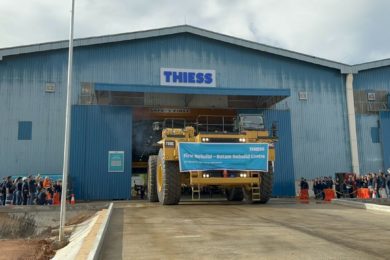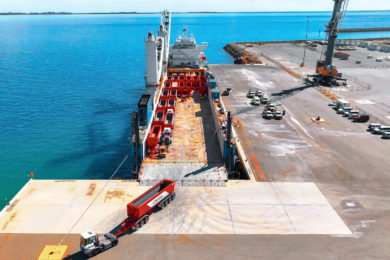In the UK, the University of Exeter has appointed Professor Frances Wall as Head of Camborne School of Mines (CSM). The first woman to lead CSM in its 120 year history, Professor Wall replaces Professor Robert Pine, who is retiring after six years as Head. She will lead a growing department at a significant point in its history. Based on the University’s Cornwall Campus, Penryn, CSM has recruited five new academics in the last year, adding to its unique mix of expertise in Earth sciences and engineering. It is proving increasingly popular with students from all over the world, with applications continuing to rise. With the mining industry booming and a worldwide shortage of qualified mining engineers, its graduates are in demand with the average having three job offers with starting salaries of around £30,000. Women are still in the minority though, representing 25% of geology students and just 15% of students in renewable energy and mining engineering.
A geologist and expert in carbonatite rocks, Wall joined CSM in October 2007 after many years at London’s Natural History Museum. She says: “It is an honour to be made head of an organisation with such a prestigious history but with its eye firmly on the future. CSM is recognised worldwide for its teaching and research in mining engineering, geology and renewable energy. I feel privileged to be in a position to build on its tremendous reputation.”
She is keen to build on CSM’s work in researching and promoting sustainability in mining. This means developing ways of minimising the environmental impact of mining while also working with developing countries to ensure their economies benefit from the potential of their mineral deposits. Having researched on mines and mineral deposits in Russia, Brazil, Finland, Namibia, the former country of Zaire and Malawi, she has seen the positive and negative impacts that mining can have on a country and its people. She notes : “There’s a saying: if it can’t be grown, it has to be mined. We all rely on mining for what we use in our day-to-day lives but the industry still has a negative reputation. With an international profile for mining and minerals teaching and research, CSM is well placed to work with the industry to show how science and engineering can lessen the negative impact of mining on people and the environment and provide a positive force for growth in developing countries.”
Wall grew up in Gloucestershire, Leicester and Nottinghamshire and became fascinated by geology at school. She studied Geochemistry at Queen Mary College, London and then moved to London’s Natural History Museum. After working in their electron microprobe unit, analysing rocks and minerals and managing the equipment, she became a Museum researcher. She began to specialise in carbonatite rocks, which can tell us about the interior of the Earth and about how ore deposits form, and completed her PhD with the University of London. While studying Earth processes and publishing a number of academic papers in prestigious journals, she carried out applied research and consultancy for the commercial mining and minerals industry. She also promoted the use of the Natural History Museum’s geological collections and advised on a number of exhibitions, including the blockbuster Diamonds.
Bob Pine will continue some of his teaching and research at CSM. He joined CSM in 1985 following four years working as a consultant on the Hot Dry Rock research project, before returning to industry in 1996. He returned to CSM in 2000, becoming Head in 2002. He comments “I have enjoyed my academic career with CSM very much and count myself lucky to work with interesting and committed colleagues in mining, geology and renewable energy. Even better is to be able to live and work in Cornwall. I am pleased to see all our courses thriving and am optimistic that this will be so for many years, with our emphasis on good science and engineering leading to areas of graduate employment that are clearly important to the UK and globally. I am particularly pleased that in the last five years we have developed our renewable energy research (including a major role in the WaveHub to be built near St Ives) and a unique undergraduate course with very strong demand. Our core interest in mining and geology is also very much back in demand and I am optimistic that this too is for the long run. CSM is in very capable hands with Frances as the new Head. I wish her and CSM well, and I look forward to continuing part-time involvement.”
CSM was founded in 1888 and became part of the University of Exeter in 1993. CSM has an international reputation for research and teaching related to the understanding and management of the Earth’s natural processes, resources and the environment. Its portfolio of undergraduate, postgraduate and research degree programs provide an excellent basis for careers, in the UK or overseas, within the Earth resources, civil engineering, environmental and energy sectors. The vast majority of CSM graduates are employed in areas related to their degree. CSM is based at the £100 million Tremough Campus, which the University of Exeter shares with University College Falmouth as part of the Combined Universities in Cornwall (CUC) initiative. The Campus is funded mainly by the European Union (Objective One), the South West Regional Development Agency, and the Higher Education Funding Council for England, with support from Cornwall County Council.
http://www.ex.ac.uk/cornwall/academic_departments/csm/index.shtml









